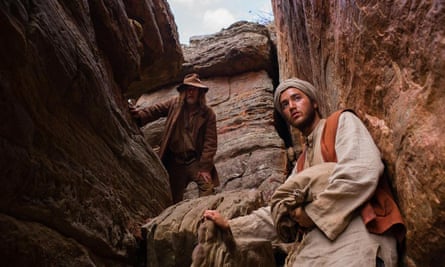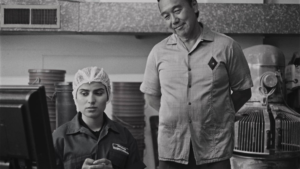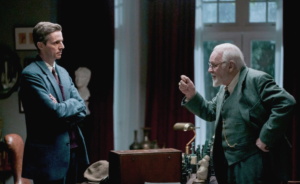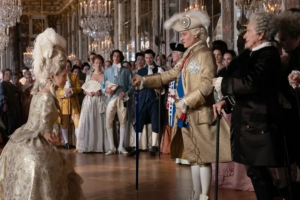Reviewed by GREG KING
Director: Roderick Mackay
Stars: David Wenham, Ahmad Malek, Baykali Gonambarr, Jay Ryan, Samuel Coulter, Erik Thomson, Trevor Jamieson, Mansoor Noor.

This ambitious, violent but gorgeous looking outback western is set in the inhospitable desert of Western Australia during the gold rush of the 1890s. The search for gold brought people from around the world to this unforgiving environment to seek their fortune. The Furnace depicts a little-known chapter of Australia’s brutal colonial history and offers up a fascinating perspective of our darker colonial history.
In the 1860s camels were imported into Australia and were used to open up the interior of the continent allowing travel across the harsh interior. Hundreds of Afghans, Sikhs and Islamic tribesmen were also brought to Australia to work with the camels, a form of indentured slavery, and they tried to earn enough money to pay for their passage back home. Many of them formed relationships and close bonds with indigenous tribes. But the camel trains were eventually phased out with the introduction of more modern forms of transport.
One such cameleer was Hanif (played by charismatic Egyptian actor Ahmad Malek, from Clash, etc) a young Afghan who was brought to Australia to work with camels in the outback. He crosses paths with Mal (David Wenham), a badly wounded outlaw who has stolen a couple of gold bars from a local mine. He is on the run from his former gang, whom he double crossed, and a posse of policemen. The gold bars are embossed with the symbol of the Crown, and Mal has to reach Kalgoorlie and find a furnace which can melt the bars down and remould them. An unlikely but prickly friendship develops between these two men as they make their way across the unforgiving desert, facing danger along the way.
The police posse is headed by the ruthless Sergeant Shaw (New Zealand actor Jay Ryan, from Neighbours, etc), who worries about his son Sam (Samson Coulter, who made his debut in Simon Baker’s 2017 drama Breath, etc), a raw recruit who is sickened by the violence he witnesses.
The Furnace is the feature film debut for writer/director Roderick Mackay, who has gained plenty of attention for his short films like Trigger and Factory 293. The Furnace has clearly been inspired by the spaghetti westerns of Sergio Leone, the westerns of Clint Eastwood and even some of our own local productions like The Proposition and the brutal The Nightingale and Sweet Country, which looked at our dark history of racial injustice and colonialism. Throw in elements from the classic The Treasure Of The Sierra Madre and you get a touch of the gold fever that drove men to desperate acts. Mackay expertly works the familiar tropes of the Hollywood western into the distinctive Australian landscape. There are a couple of visceral action scenes handled effectively by Mackay.
This is a handsomely mounted production shot on location in the remote area of Western Australia. Some beautiful evocative widescreen lensing from cinematographer Mick McDermott (Hounds Of Love, etc) captures the harsh beauty of this frontier setting and rugged territory, and you can almost feel the heat rippling off the screen. There is some superb production design from Clayton Jauncey (Beneath Hill 60, etc) that creates the mining town of Mount Magnet.
In keeping with the nature of the drama, Mackay has assembled a racially diverse cast to flesh out the characters. Malek brings emotional depth and resilience and quiet nuances to his performance as Hanif. He makes for a sympathetic protagonist. The role of Mal was written especially for Wenham, and he captures the character’s enigmatic quality, but he also has a dangerous edge and a hard bitten quality. Baykali Ganambarr (from the acclaimed The Nightingale) plays Woorak, a wise indigenous leader who befriends Hanif and teaches him some valuable survival skills for coping in the desert. Throughout the film Mackay shows the strong interaction between the immigrant cameleers and the aborigines, both of whom felt out of place amongst the white colonial settlers.
However, the running time of 116 minutes seems a little overlong for what Mackay has to say and the pace drags a little in the middle sections of the film.
★★★☆



